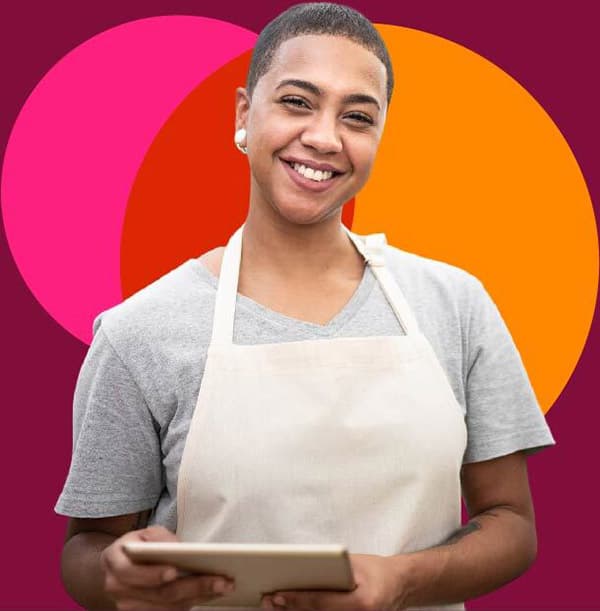What We Can Learn From Retailers that Have Reopened in China
With the outbreak of COVID-19, the definition of “business as usual” has completely changed. Rather than planning and executing top store initiatives, we are now looking at safety, growing health concerns and store closures. As COVID-19 made its way from China to the rest of the world, the staggered path of the virus provided a silver lining – allowing health experts, governments, economists and others to look to China as an example of what the rest of the world can expect in the future. In this article, we share five lessons from China retailers that have reopened stores following COVID-19.
Empower stores
In a roundtable conversation facilitated by McKinsey’s Greater China Consumer and Retail Practice, Motonobu Miyake, CEO of Lawson (China) Holdings said, “We made sure staff were aware that if they acted to comply with local regulations without consulting supervisors, they would not be penalized, and that clear and open communication about their situation was paramount.”
Government regulations vary from state to state and even city to city. Given the pace of change, headquarters will never have all the information they need to stay on top of every store location. As a result, brands need to empower stores to make the best decisions for their employees and the company.
Use reopenings to rally employees
At the same McKinsey roundtable discussion, Belinda Wong, Chairman and CEO of Starbucks China said, “As the situation evolved, we shifted focus to reopening, which was critical not just for the business but also for company spirit.”
For many retailers, stores closed for the first time in the brand’s history. Many employees were laid off or furloughed and the employees that remained were uneasy about the future. Focusing on reopenings allows teams to come together and work on something positive. Starbucks China knew that employees needed a boost and even began planning to reopen while store closures were still growing.
And when stores reopened, employees got the excitement they were hoping for. A Robb Report article notes that an Hermès boutique in China made $2.7 million in one day after it reopened, offering “hope to luxury brands and retailers of what economic recovery may look like in the coming months.”
Focus on employee safety
Even though supplies might be in short order, companies must go out of their way to ensure that employees are safe. At the roundtable, Asia COO at LVMH Perfumes and Cosmetics, Jean-Michel Moutin, said, “Protecting the safety of our staff was paramount. We defined safety measures, and in less than 10 days put in place a full supply chain to source and dispatch hundreds of thousands of masks to our staff all over Asia, in the field and at the office. That required an unprecedented degree of coordination between human resources and logistics staff.
Starbucks also prioritized its store associates to “ensure they were safe and confident in their working environment.” Why? Front-line employees represent the brand to consumers. Savvy companies know that employees must trust their leaders in order to represent the brand well.
Keep an eye to the future
It’s hard to work in an environment of uncertainty. Misinformation and distraction abounds, making it easy to focus solely on the day to day. But the best retailers continue to look towards the future. Jean-Michel Moutin explains, “Focusing on crisis management does not mean that you have to give up long-term perspective and strategic capability building…” In other words, when the going gets tough, the tough don’t give up. They plan and work towards the future.
Remember your values
A phrase that we hear a lot these days is, ‘There is no playbook for COVID-19.’ Retail leaders in China, especially, were forced to make up policies and procedures on the spot. Belinda Wong of Starbucks found inspiration in her company’s values. She says, “I remembered how Howard Schultz (Starbucks founder and chairman emeritus) used to say that not every decision is an economic one. That has stuck with me, and in the current crisis, it helped me understand what I needed to do. I fell back on the fundamental principle—what is the right thing to do for our partners, customers, and the country? In times of extreme ambiguity, our values can provide much-needed clarity and guidance.”
To learn more about Retail Zipline and we can help you align your stores during this chaotic time, please reach out.
Recent Posts
Company News
Zippy is Officially Here!
Retail Communications
Summer Camp 2024 Award Winners!
Company News
How To Convince Your Boss to Send You to Summer Camp
Employee Engagement
How Culture Fuels O’Reilly Auto Parts
Company News
Zipline Achieves Record-Breaking Customer Satisfaction Scores in 2023 Survey
Industry Trends
The Best Presentation I Saw at NRF Had Me Cheering By Myself in a Room Full of Strangers
Employee Engagement
Everything You Need to Know about Learning Journeys
Industry Trends
New Tech I Saw at NRF That May Be a Waste of Money
Expert Interviews
NRF 2024 Day 3
Industry Trends
NRF 2024 Day 2
